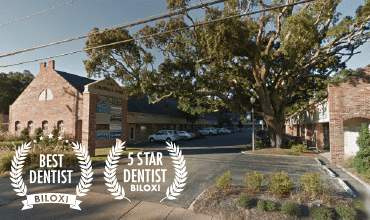Life happens. And sometimes, life can lead to some pretty unpleasant health conditions. In fact, you’d be hard-pressed to find a human being who doesn’t complain of some kind of health issue. For many of us, these health issues can have a harmful impact on our teeth, mouth, and gums. Sometimes, our teeth can suffer so much damage, so much decay, and so much hardship that they require a significant amount of dental care. This is where “Full Mouth Rehabilitation” comes into play.
What is a Full Mouth Rehabilitation?
Because full mouth rehabilitation is such a broad, general subject, it’s tricky to pinpoint an exact definition of this process. Probably the best definition of the process was penned by The Consumer Guide to Dentistry. In their description of full mouth rehabilitation, they sum it up in just two sentences:
- “Full mouth reconstruction, rehabilitation, and restoration are terms often used interchangeably to describe the process of rebuilding or simultaneously restoring all of the teeth in both the upper and lower jaws. Full mouth reconstruction typically involves general or restorative dentists (performing procedures like crowns, bridges, and veneers), and can incorporate dental specialists like periodontists (specializing in the gums), oral surgeons, orthodontists (specializing in tooth movements and positions) and endodontists (specializing in the tooth pulp).”
Clearly, full mouth rehabilitation means what it says. This is a complete change, a full reconstruction of the mouth, of all of the teeth, everything. A full mouth restoration is not an entirely common process, but when it is needed, it is valuable to have a dental team that can provide these services for you and your family.
Why Would Someone Need Full Mouth Rehabilitation?
How could it come about that a patient would need full mouth rehabilitation? This can come about from a variety of causes.
- One can have a set of teeth which have deteriorated over time due to long-time acid erosion from acid reflux or other gastrointestinal issues.
- One can have a set of teeth which are weakened and damaged due to years of poor dental hygiene.
- One might also have a bad set of teeth due to genetically inherited weak enamel, poor tooth construction, etc.
- Behavioral implications fit in here too. Years of drug use can and do completely ruin a set of teeth, requiring dental rehabilitation.
One of the stable truths of dentistry is that, when conditions in the mouth, teeth, and gums begin to take a turn for the worse, those trends tend to maintain, unless corrected. An adverse condition in the teeth tends to get worse, not better, if time is allowed to pass without correcting the issue. Patients may go years without fixing dental problems they might even know they have, be it from a lack of awareness of the severity of their condition, a lack of funds to receive the necessary dental services, other life priorities, etc.
There are also individuals with specific medical conditions that lead to rapid and universal deterioration of the teeth and gums. According to a direct quote from the American College of Prosthodontists:
- “There is also a group of patients who were born with conditions such as Ectodermal Dysplasia, Ameliogenesis, or Dentinogenisis Imperfecta that will need extensive restoration of their teeth. These patients may be candidates for a full mouth reconstruction.”
We are fortunate enough to live in a time period where dental science and technology has advanced so much that these techniques are even available to us. It is truly a miracle that we live in a world where a patient can take a mouth full of missing teeth, chipped, cracked, and broken teeth, root canal infections, cavities, stained and damaged gums, and fully restore the entire scene.
What Does a Full Mouth Rehabilitation Entail?
Full mouth reconstruction means what it says. This process involves periodontal care, the usage of crowns, surgery, contouring of gum tissue, the use of veneers and bridges, dental implants, root canal therapies, fillings, bone and tissue grafting. etc. Full mouth rehabilitation means that one’s dentist will have to make full use of their tools and knowledge, often utilizing other specialists for certain aspects of the process.
But when all is said and done, the process is absolutely worth it. One walks away with a fresh and clean mouth, fully reconstructed, as though time was erased and none of the damage or decay was ever there. It’s a fresh slate so to speak, and it’s one that is very worth the investment. One now has a brand new mouth that, if they take good care of it, will last them for the rest of their lives.
Sources:











